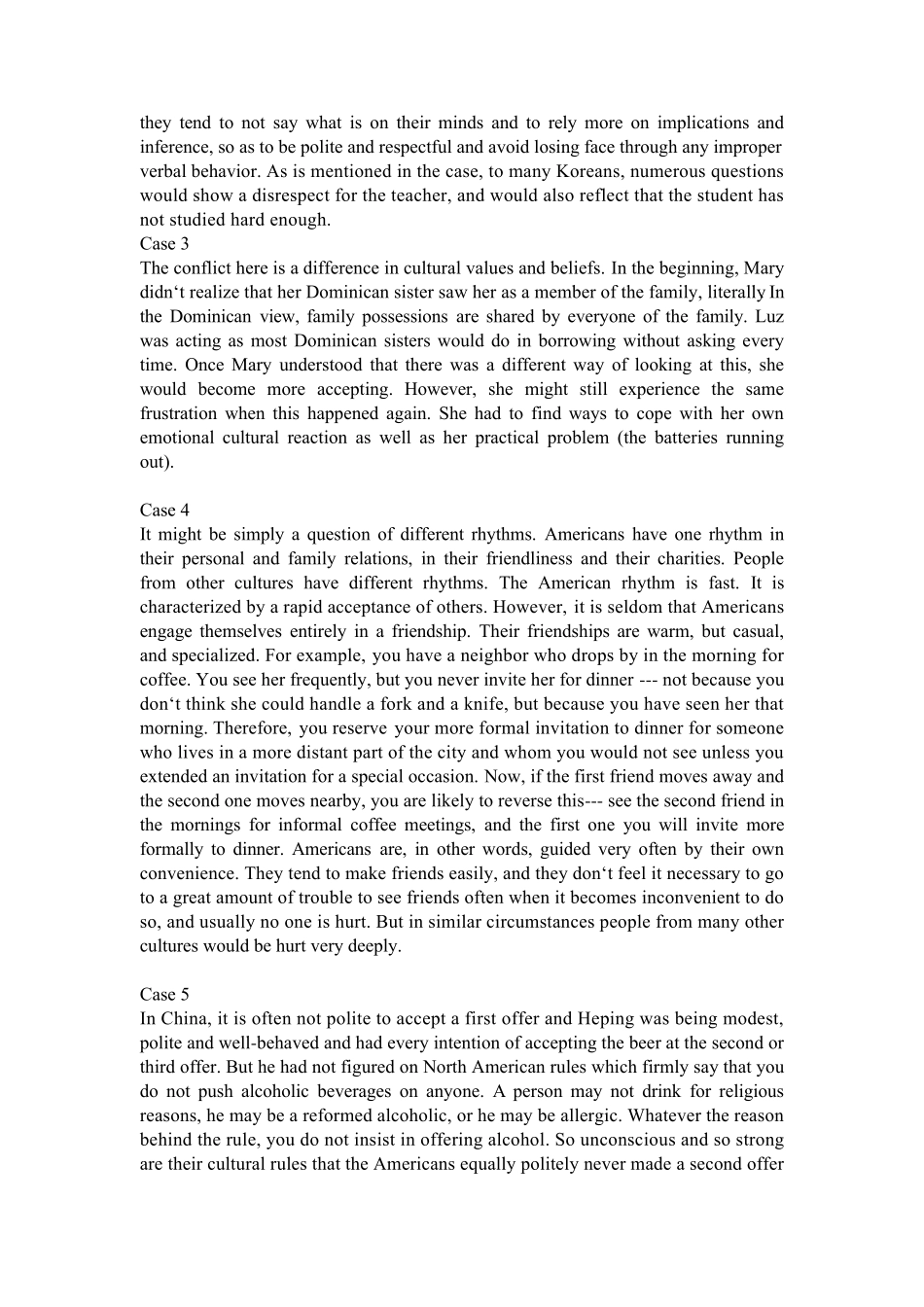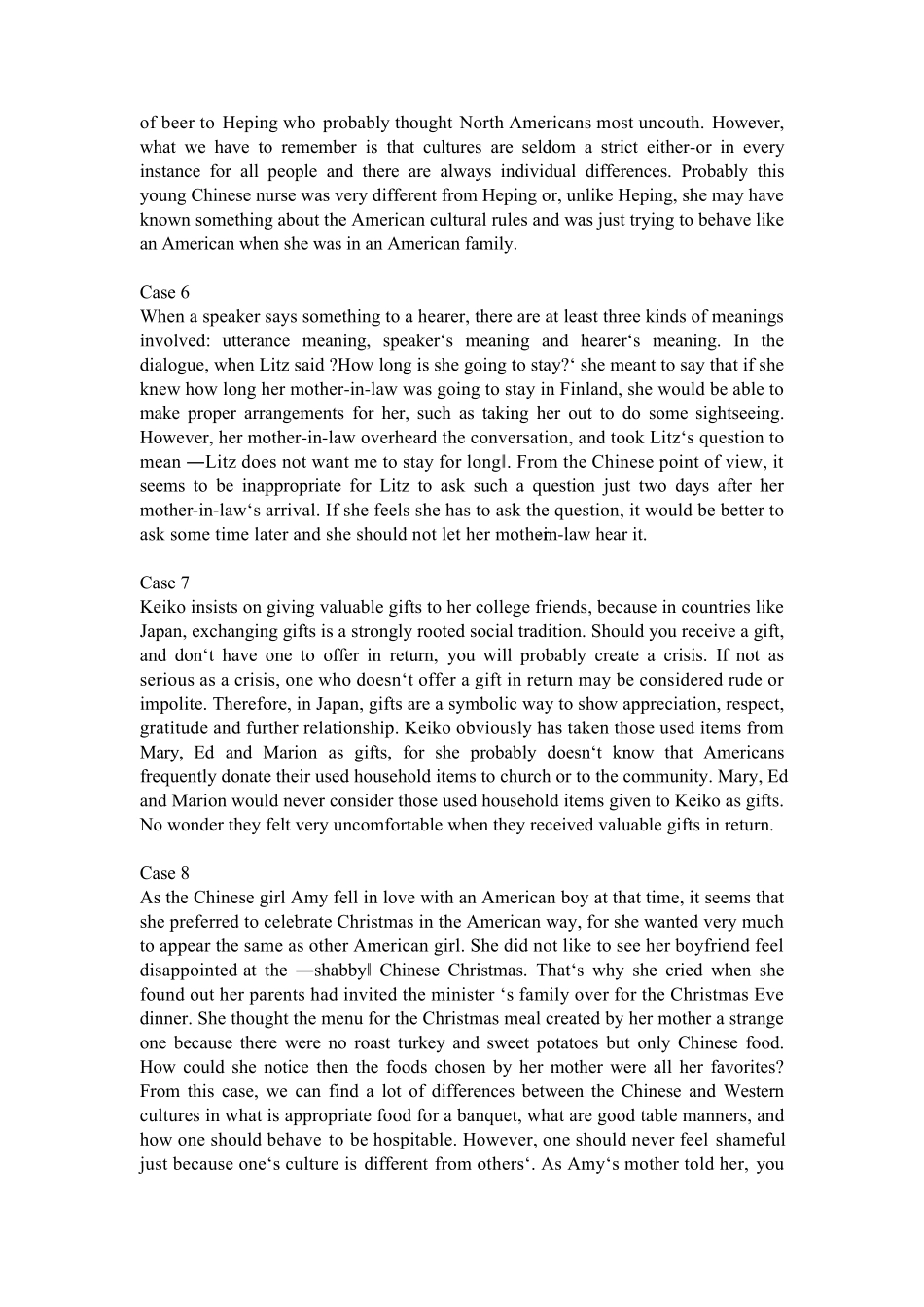Case 1 In this case, there seemed to be problems in communicating with people of different cultures in spite of the efforts made to achieve understanding. We should know that in Egypt as in many cultures, the human relationship is valued so highly that it is not expressed in an objective and impersonal way. While Americans certainly value human relationships, they are more likely to speak of them in less personal, more objective terms. In this case, Richard‘s mistake might be that he chose to praise the food itself rather than the total evening, for which the food was simply the setting or excuse. For his host and hostess it was as if he had attended an art exhibit and complimented the artist by saying, ― What beautiful frames your pictures are in. In Japan the situation may be more complicated. Japanese people value order and harmony among persons in a group, and that the organization itself-be it a family or a vast corporation-is more valued than the characteristics of any particular member. In contrast, Americans stress individuality as a value and are apt to assert individual differences when they seem justifiably in conflict with the goals or values of the group. In this case: Richard‘s mistake was in making great efforts to defend himself. Let the others assume that the errors were not intentional, but it is not right to defend yourself, even when your unstated intent is to assist the group by warning others of similar mistakes. A simple apology and acceptance of the blame would have been appropriate. But for poor Richard to have merely apologized would have seemed to him to be subservient, unmanly. When it comes to England, we expect fewer problems between Americans a...


